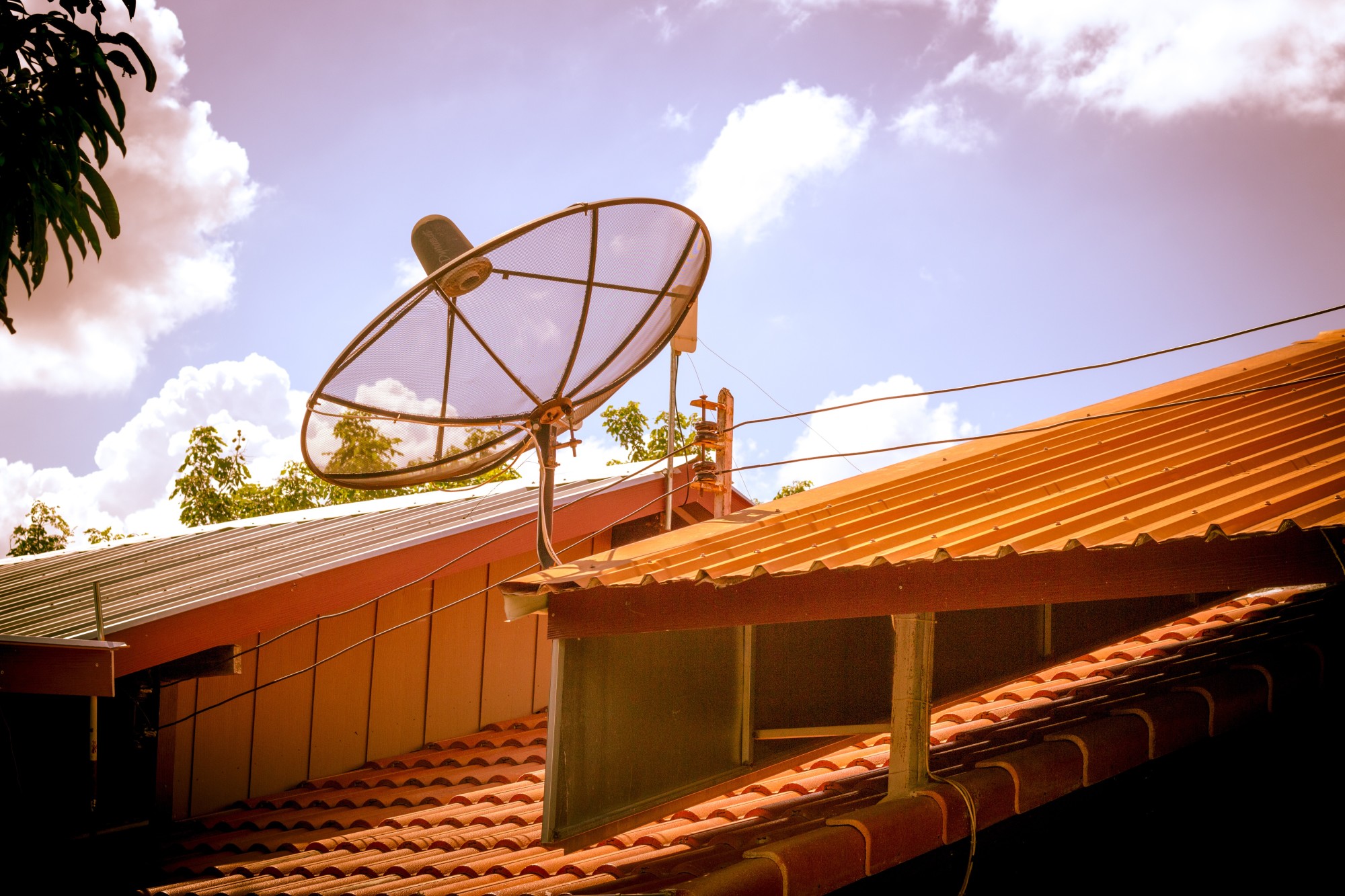Looking to upgrade or switch your service to satellite? When shopping for the best provider, explore the best satellite internet review of Viasat.
23 October, 2024 | Posted by: Pablo Mendoza
Category: Reviews, Internet, Service Providers | No Comments

Viasat has long been a key player in the satellite internet market, offering reliable and high-speed internet to areas where traditional broadband options are limited or unavailable. This review provides an updated look at Viasat's offerings in 2024, including new plans, pricing, features, and how it compares to other providers.
Viasat offers several plans to cater to different needs and budgets. Here is a detailed comparison of Viasat's current plans:
| Plan Name | Price | Download Speed | Upload Speed | Data Cap | Details |
|---|---|---|---|---|---|
| Unlimited Bronze 12 | $49.99/mo | Up to 12 Mbps | 3 Mbps | 40 GB | Suitable for basic browsing and email |
| Unlimited Silver 25 | $69.99/mo | Up to 25 Mbps | 3 Mbps | 60 GB | Good for streaming and light gaming |
| Unlimited Gold 50 | $99.99/mo | Up to 50 Mbps | 3 Mbps | 100 GB | Ideal for multiple users and HD streaming |
| Unlimited Platinum 100 | $149.99/mo | Up to 100 Mbps | 3 Mbps | 150 GB | Best for heavy usage and 4K streaming |
| Viasat Unleashed | $99.99 - $119.99/mo | Up to 150 Mbps | 3 Mbps | Unlimited (850 GB soft cap) | No contract, professional installation, built-in Wi-Fi |
In 2024, Viasat introduced the Unleashed plan, simplifying its offerings and providing a more consistent and enhanced user experience. The Unleashed plan includes:
Viasat performs well compared to other satellite ISPs like HughesNet and Starlink. Here’s a quick comparison:
| Provider | Plan Price Range | Speeds (Download) | Data Cap | Contract | Key Features |
|---|---|---|---|---|---|
| Viasat | $49.99 - $119.99/mo | Up to 150 Mbps | Unlimited (850 GB soft cap) | No contract | High-speed rural internet, no data overage fees |
| HughesNet | $49.99 - $79.99/mo | Up to 100 Mbps | 50 - 100 GB | 24 months | Reliable speeds, nationwide availability |
| Starlink | $110/mo | 50 - 250 Mbps | Unlimited | No contract | Low latency, high speeds |
Customer reviews of Viasat are mixed, with some praising the high speeds and reliability, while others criticize the high latency and variable speeds. Here are some insights from users:
Viasat also offers several additional services to enhance your internet experience:
Viasat continues to be a leading choice for satellite internet, especially for those in rural or remote areas. With its new Unleashed plan, Viasat offers high-speed internet with no hard data caps and no annual contracts, making it a flexible and reliable option. While it may not compete with fiber or cable in terms of latency, it remains a top choice for those without access to traditional broadband options.
For more updates and information on internet service providers, stay tuned to our blog.
Konecteaze helps you determine the factors one must consider when selecting an internet service provider to work from home.
24 October, 2024 | Posted by:
Category: Business Internet, Service Providers, Tips | No Comments

In today's world, where remote work has become the norm for many, having a reliable and fast internet connection is more important than ever. Choosing the right Internet Service Provider (ISP) can significantly impact your productivity and overall work experience. Here’s an updated guide on what to look for in an ISP when working from home, along with related articles for further reading.
One of the most critical factors to consider is the speed of your internet connection. Different tasks require different speeds:
For more detailed information on internet speeds, check out How Fast Does Internet Need to Be for Streaming, Gaming, and More?
Bandwidth is often confused with speed, but they are not the same. Bandwidth refers to the amount of data that can be transmitted over your internet connection in a given amount of time. If you have multiple devices connected simultaneously, you'll need higher bandwidth to avoid slowdowns.
Consistency and reliability are essential qualities of an ISP. An unreliable connection can disrupt your work and cause frustration. Look for ISPs with high uptime guarantees and positive customer reviews regarding reliability.
Good customer support is crucial, especially if you encounter issues with your internet connection. Ensure that the ISP offers 24/7 customer support and has a reputation for resolving issues promptly.
Some ISPs impose data caps, which can limit the amount of data you can use each month. For remote work, especially if it involves video conferencing and large file transfers, it's best to choose an ISP that offers unlimited data plans.
While cost shouldn't be the only factor, it is essential to find an ISP that offers good value for money. Compare the prices of different ISPs and the features they offer to ensure you get the best deal.
Different types of internet connections offer varying speeds and reliability:
Fiber internet is the fastest and most reliable option available. It offers high speeds and low latency, making it ideal for remote work. Providers like AT&T Fiber and Google Fiber are excellent choices.
Cable internet also provides high speeds and is widely available. Companies like Spectrum and Cox offer robust cable internet plans suitable for remote work.
DSL internet can provide decent speeds, but its performance can degrade if you are far from the provider's hub. AT&T offers reliable DSL plans.
Satellite internet is generally slower and less reliable than other types, but it can be a good option for those in rural areas. Viasat and HughesNet are the primary providers.
Choosing the right ISP is crucial for a smooth and productive remote work experience. Consider factors such as speed, bandwidth, reliability, customer support, data caps, and price when making your decision. By doing thorough research and comparing different options, you can find an ISP that meets your needs and ensures a seamless work-from-home experience.
For more updates and information on internet service providers, stay tuned to our blog.
Latest updates on internet service providers packages, plans, deals and news during the coronavirus outbreak. Keeping internet customers up to date with the latest moves companies are making to help consumers with their internet and cable bill
23 October, 2024 | Posted by:
Category: News, Service Providers | No Comments

As the COVID-19 pandemic continues to impact our daily lives, internet service providers (ISPs) have been crucial in ensuring that people remain connected. This article provides an update on how various ISPs are responding to the pandemic, including new initiatives, support measures, and related articles for further reading.
In response to the COVID-19 pandemic, FCC Chairman Ajit Pai announced the Keep Americans Connected Initiative on March 13, 2020. The pledge included commitments from more than 800 companies and associations to:
During the pandemic, the Affordable Connectivity Program (ACP) was launched to help low-income households stay connected. The program provided $30 monthly subsidies for internet bills, or $75 discounts in tribal or high-cost areas. However, the ACP is now out of funds, and its future remains uncertain. Many ISPs are preparing post-ACP plans to continue supporting their customers.
Verizon introduced the "Verizon Forward" initiative, offering home internet for as low as $20/month. New customers could pay $0/month for the first six months they are enrolled.
AT&T continued offering its "Access from AT&T" plan, which provides 100 Megabit speeds for $30/month. With the ACP’s $30 discount, this plan was previously free for some customers.
Comcast’s "Internet Essentials" plan provides a low-cost connectivity option, with home internet starting from $9.95/month. Additionally, customers can transfer their ACP benefit to some plans.
Charter, the largest provider in the ACP program, has not made specific announcements about ACP replacements. However, some customers may be eligible for Spectrum’s Internet Assist Plan, offering 50 megabit internet for $24.99/month.
Local governments have also stepped up to address digital inclusion during the pandemic. Initiatives include:
The COVID-19 pandemic has underscored the importance of reliable internet access. While many ISPs have taken significant steps to support their customers during this time, the future of programs like the ACP remains uncertain. Continued efforts from both providers and local governments are essential to ensure that all Americans can stay connected in an increasingly digital world.
For more updates and information on internet service providers' responses to the pandemic, stay tuned to our blog.
Keeping you up to date on the latest changes in internet service providers policies regarding usage and data during the coronavirus pandemic
23 October, 2024 | Posted by:
Category: News, Service Providers | No Comments
The COVID-19 pandemic has significantly impacted how we live, work, and connect. Internet providers have played a crucial role in ensuring that people stay connected during these challenging times. This article provides an update on how various internet service providers (ISPs) have responded to the pandemic, including new initiatives, support measures, and related articles for further reading.
In response to the COVID-19 pandemic, FCC Chairman Ajit Pai announced the Keep Americans Connected Initiative on March 13, 2020, and extended it to June 30, 2020. The pledge included commitments from more than 800 companies and associations to:
During the pandemic, the Affordable Connectivity Program (ACP) was launched to help low-income households stay connected. The program provided $30 monthly subsidies for internet bills, or $75 discounts in tribal or high-cost areas. However, the ACP is now out of funds, and its future remains uncertain. Many ISPs are preparing post-ACP plans to continue supporting their customers.
Verizon introduced the "Verizon Forward" initiative, offering home internet for as low as $20/month. New customers could pay $0/month for the first six months they are enrolled.
AT&T continued offering its "Access from AT&T" plan, which provides 100 Megabit speeds for $30/month. With the ACP’s $30 discount, this plan was previously free for some customers.
Comcast’s "Internet Essentials" plan provides a low-cost connectivity option, with home internet starting from $9.95/month. Additionally, customers can transfer their ACP benefit to some plans.
Charter, the largest provider in the ACP program, has not made specific announcements about ACP replacements. However, some customers may be eligible for Spectrum’s Internet Assist Plan, offering 50 megabit internet for $24.99/month.
Local governments have also stepped up to address digital inclusion during the pandemic. Initiatives include:
The COVID-19 pandemic has underscored the importance of reliable internet access. While many ISPs have taken significant steps to support their customers during this time, the future of programs like the ACP remains uncertain. Continued efforts from both providers and local governments are essential to ensure that all Americans can stay connected in an increasingly digital world.
For more updates and information on internet service providers' responses to the pandemic, stay tuned to our blog.
When you become a new homeowner finding an internet provider may seem tricky. Read on to learn about Viasat vs Hughesnet and which is best for you.
23 October, 2024 | Posted by: Pablo Mendoza
Category: Reviews, Internet, Service Providers | No Comments

When choosing a satellite internet provider, two prominent names often come up: Viasat and HughesNet. Both offer a range of plans catering to different needs, but which one is right for you? This updated comparison will help you decide by examining the latest plans, pricing, and speeds from both providers.
Viasat offers a variety of plans with different speeds and data allowances. Here are the current options:
| Plan Name | Price | Speed | Data Allowance |
|---|---|---|---|
| Unlimited Bronze 12 | $49.99/mo | Up to 12 Mbps | 40 GB |
| Unlimited Silver 25 | $69.99/mo | Up to 25 Mbps | 60 GB |
| Unlimited Gold 50 | $99.99/mo | Up to 50 Mbps | 100 GB |
| Unlimited Platinum 100 | $149.99/mo | Up to 100 Mbps | 150 GB |
HughesNet offers straightforward plans with consistent speeds but varying data allowances. Here are the latest plans:
| Plan Name | Price | Speed | Data Allowance |
|---|---|---|---|
| 15 GB Plan | $64.99/mo | 25 Mbps | 15 GB |
| 30 GB Plan | $74.99/mo | 25 Mbps | 30 GB |
| 45 GB Plan | $109.99/mo | 25 Mbps | 45 GB |
| 75 GB Plan | $159.99/mo | 25 Mbps | 75 GB |
To help you compare Viasat and HughesNet side by side, here is a detailed comparison chart:
| Feature | Viasat | HughesNet |
|---|---|---|
| Starting Price | $49.99/mo | $64.99/mo |
| Max Speed | Up to 100 Mbps | 25 Mbps |
| Data Allowance | 40 GB - 150 GB | 15 GB - 75 GB |
| Contract Length | 24 months | 24 months |
| Equipment Fees | $9.99/mo rental or $299.99 purchase | $14.99/mo rental or $449.99 purchase |
| Availability | Nationwide | Nationwide |
Customer service is a crucial factor when choosing an internet provider. Here’s a comparison of Viasat and HughesNet in this area:
Both providers require professional installation for their satellite internet services:
Choosing between Viasat and HughesNet depends on your specific needs. If you require higher speeds and larger data allowances, Viasat is likely the better option. However, if you prefer consistent pricing and a straightforward plan structure, HughesNet might be more suitable. Consider your internet usage habits, budget, and the importance of speed versus data allowance when making your decision. Both providers offer reliable satellite internet services with nationwide availability, making them excellent choices for rural and remote areas where traditional broadband options may be limited.